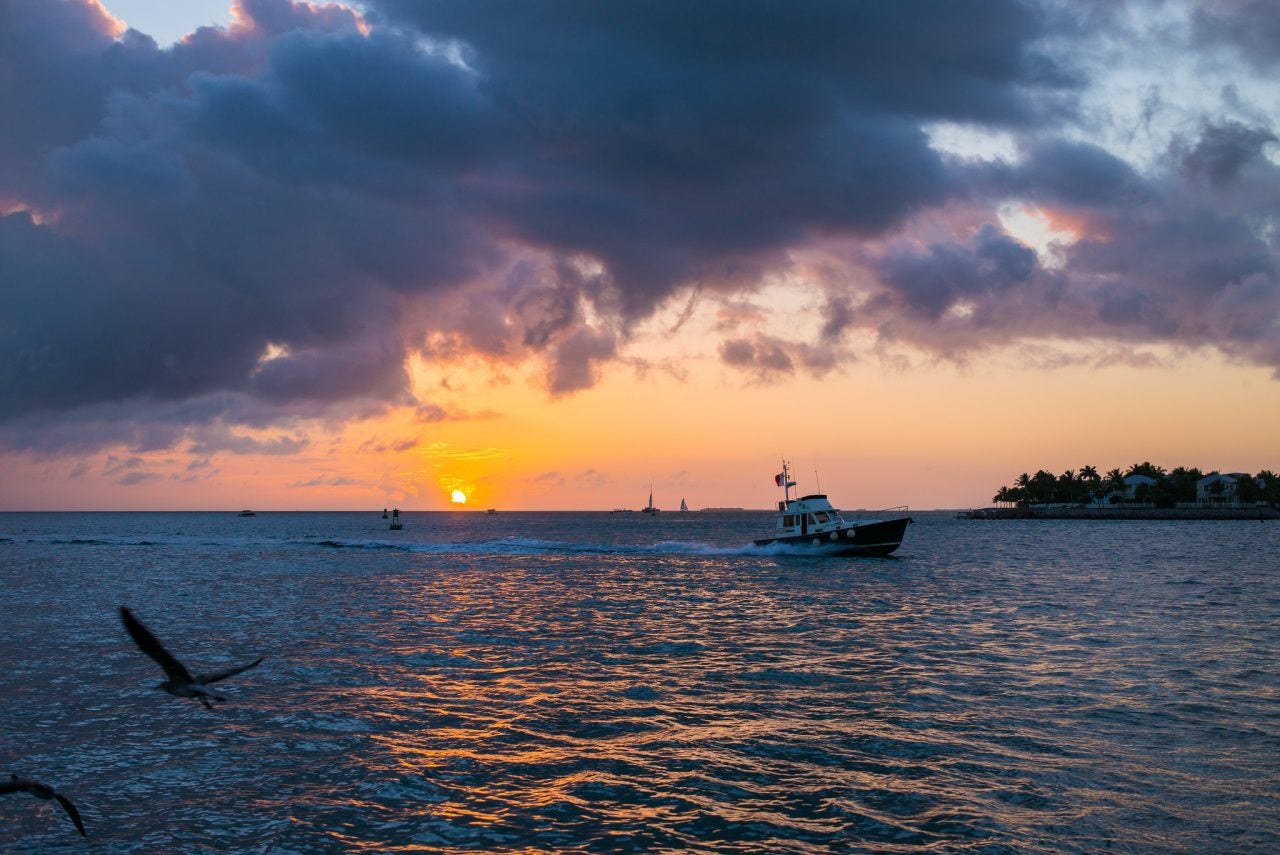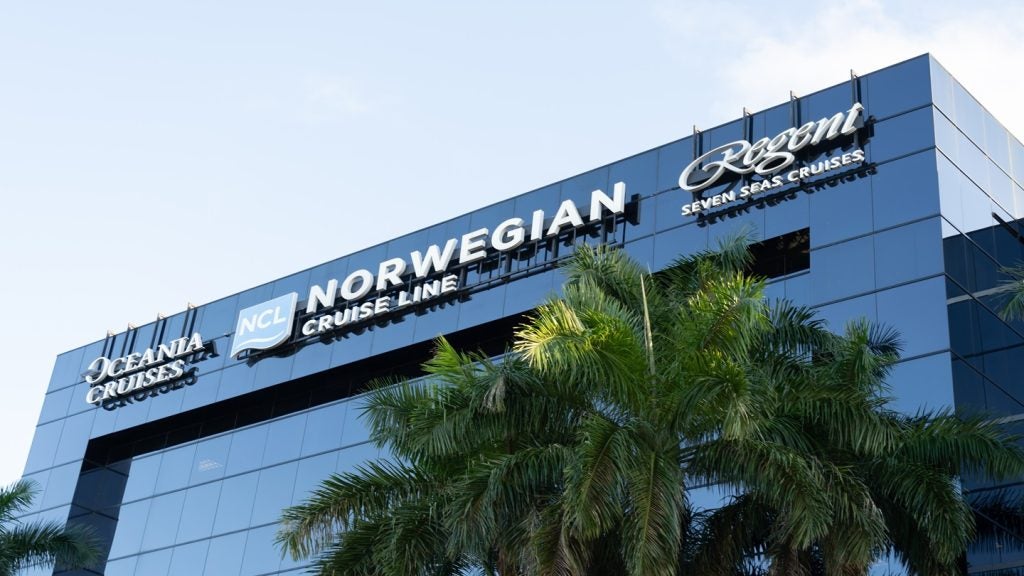
Key West is Florida’s southernmost point, making it an ideal stop for cruises. Before the pandemic hit, the island city was a regular destination for cruise lines such as Carnival and Royal Caribbean.
Last year, the city held three referendums on the same day to impose restrictions on cruise vessels docking at its ports. All three votes passed with clear majorities.
The restriction campaign was led by a grassroots residents group called the Key West Committee for Safer, Cleaner Ships. Its treasurer, Arlo Haskell, is keen to point out that the group doesn’t want to stop cruises coming to Key West, it just wants limits.
“We haven’t banned cruise ships, and we don’t want to ban cruise ships,” says Haskell. “We’re really just putting into effect a fairly common sense size restriction that has to do with the depth of our channel and the depth of our port. Ships coming here, a lot of them will still be about 700ft-long. There are still large ships carrying over 1,000 people. They’re just not the really big ships that do damage.”
“We think there’s definitely a place in Key West, in our economy, for those smaller ships, which incidentally tend to have a higher spending passenger on board as well.”
However, the victory could be short-lived. Pending legislation at state level seeks to overturn the restrictions.
How well do you really know your competitors?
Access the most comprehensive Company Profiles on the market, powered by GlobalData. Save hours of research. Gain competitive edge.

Thank you!
Your download email will arrive shortly
Not ready to buy yet? Download a free sample
We are confident about the unique quality of our Company Profiles. However, we want you to make the most beneficial decision for your business, so we offer a free sample that you can download by submitting the below form
By GlobalData
How the votes happened
When the rest of the US was going to the polls for the presidential election on 3 November 2020, Key West was also voting for limits on visiting cruise vessels as amendments to the city’s charter.
One ballot was to put a daily cap on cruise visitors at 1,500, which received 63% of the vote. The second was to ban the docking of cruise vessels carrying 1,300 or more passengers, and this passed with 61%.
Finally, the third question was to prioritise docking for cruise lines with the highest environmental and health standards. This question proved the most popular, gaining 81% of the vote. It is understood that these votes would effectively halve the annual number of cruise passengers visiting Key West.
Yet according to Haskell, the campaign and vote might never have happened if it wasn’t for Covid-19. He says when cruise traffic stopped completely during the pandemic, it gave residents a chance to notice the improvements in the marine environment. Many were keen to keep the changes, which led to a push for public votes.
“Within a relatively short period of time of there being no daily cruise ship traffic, people just began to notice the waters were clearer than they had been in 30 years, probably,” says Haskell, who grew up in Key West. “So this initiative – which really was born out of a public health concern – began to attract a lot of support from people who are concerned about the environment and concerned about the economic threat of continuing to damage the environment.”
Challenging the votes
Florida state senator Jim Boyd has put forward a bill that would effectively nullify the cruise limits in Key West, as well as take decision-making powers on port controls away from local authorities and hand it to the state and federal governments.
Senator Boyd’s proposed legislation states: “Notwithstanding any other law to the contrary, a local government may not restrict or regulate commerce in the seaports of this state, as listed in s.311.09, including, but not limited to, regulating or restricting a vessel’s type or size, source or type of cargo, or number, origin, or nationality of passengers. All such matters are expressly preempted to the state.”
Boyd’s bill also claims that restrictions in Key West will cause disruptions and wider economic damage across Florida.
For it to become law, Boyd’s bill will need to be passed by Florida’s house of representatives and senate, as well as being signed off by Republican state governor Ron DeSantis. Florida state’s legislative session is due to begin on 2 March.
The Cruise Line International Association (CLIA) has expressed its support for Boyd’s bill. It suggests that the bill will provide greater clarity and consistency for operations throughout the state.
“The cruise industry places great importance on being a strong partner in the communities we visit and strives to maximise the social and economic benefits of tourism for residents,” says a CLIA spokesperson.
“We believe open dialogue and communication is critical to achieving practical outcomes for all parties, and we still hope to have that opportunity in Key West. We support the legislation in concept because it confirms the principle that maritime commerce is subject to a uniform regulatory framework instead of a patchwork of conflicting restrictions in each municipality.”
Yet Haskell and his group are confident that they have the mandate and public support to uphold the cruise vessel limits.
“We’re working on building a coalition of people from around the state of Florida to educate people about what’s at stake with this bill and to hopefully fight against it and prevent it from becoming law,” adds Haskell. “I think once people in Florida realise that this affects them and affects their ability to manage what goes on in their own backyard, I’m optimistic that that that will succeed, and this bill will go away.”
The economic impact
Key West has a population of approximately 25,000 and received almost a million cruise visitors in 2019.
A report for CLIA published in August 2020 states that the new restrictions could cause permanent damage to the Key West economy. It estimates that cruise visitors contribute 7% of the total amount spent by tourists in Key West.
While this might appear a fairly low figure, it still amounts to $73m from the $1.2bn total revenue from tourism in the area, according to 2018 figures. In addition, cruise lines contribute a further $15m to the local economy through dockage fees.
The report highlights that while cruise visitors don’t stay in hotels or get flights – spending less money other tourists staying in the area – they actually spend more per hour than other visitors in specific sectors such as food and drink, recreation, and retail. In fact, 12% of all direct tourist spending in Key West is attributed to cruise visitors.
In addition, the report claims that the cruise industry supports 800 jobs in Key West, either directly or indirectly. And it states that Key West had a 2% unemployment rate in 2019, which could jump to 6.5% without the cruise industry. The report argues that the cruise industry will be important to Key West’s economic recovery from Covid-19.
As for cruise lines, it is not believed that the Key West limits will cause a major disruption once operations start up again.
“The ban is likely to have a small impact on cruise lines,” says GlobalData Travel and Tourism analyst Gus Gardner. “Given that larger operators tend to have small and large vessels in their fleets, itineraries can easily be adjusted, and ships changed to adapt to the operational restrictions now present at Key West. Some disruption could occur if a cruise ship is banned from docking at Key West and cannot find alternative space in other Florida ports.
“However, with PortMiami and Port Canaveral’s expansion plans, it is unlikely to be an issue. The ban imposed by Key West could be seen by many as simply ‘passing on’ the problem to other ports in the area, solving the issue for one but passing it onto another.”
Yet this is may only be the case if the restrictions remain in isolation.







